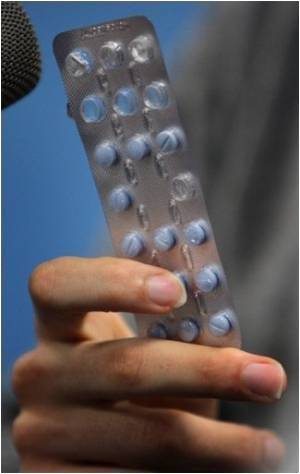A new study says that harmful effects of medication bring an estimated 4.5 million patients to doctors'' offices and emergency rooms yearly.

Such medication mishaps are a widely recognized problem in health care, but until now, most research has focused on their incidence in the hospital.
"The outpatient setting is where 80 percent of medical care takes place-where we would expect the real burden of the problem to be," said Urmimala Sarkar, M.D., lead study author, at the University of California, San Francisco.
Analyzing data from 2005 to 2007 from the National Center for Health Statistics, the researchers found that 13.5 million outpatient visits during this three-year period had links to negative effects from prescription medications, in the study appearing online in the journal Health Services Research.
Patients made nearly three-fourths of the visits-72 percent-to doctors'' offices, with the other 28 percent of patients going straight to hospital emergency rooms.
As the researchers expected, drug-associated problems grew more common with age: Visits were most frequent among those 65 and older. "But this isn''t just a problem for older people-there were very significant numbers [of adverse drug events] among the middle-aged as well," Sarkar said.
More important than age was the number of medications taken daily, which the researchers called "the most critical factor" in raising risk.
The study found that medication-associated problems represent a substantial burden on the health care system beyond the cost of the initial visit: 22 percent of these patients were scheduled to have follow-up visits, and 9 percent were admitted to the hospital.
Overall, "the economic and clinical consequences of drug-related problems, as well as the impact on the quality of life of many patients, are staggering and alarming," Bootman said.
Steps to alleviate drug-related problems ultimately should include changes in the health care system, such as coordinated electronic medical records to facilitate information sharing between clinicians, Sarkar said.
TERMS OF USE: This story is protected by copyright. When reproducing any material, including interview excerpts, attribution to the Health Behavior News Service, part of the Center for Advancing Health, is required.
Health Services Research is the official journal of the AcademyHealth and is published by John Wiley & Sons, Inc. on behalf of the Health Research and Educational Trust. For information, contact Jennifer Shaw, HSR Business Manager at (312) 422-2646 or [email protected]. HSR is available online at www.blackwell-synergy.com/loi/hesr.
Sarkar U, et al. Adverse drug events in U.S. adult ambulatory medical care. Health Services Research online, 2011.
Source-Newswise
 MEDINDIA
MEDINDIA



 Email
Email





